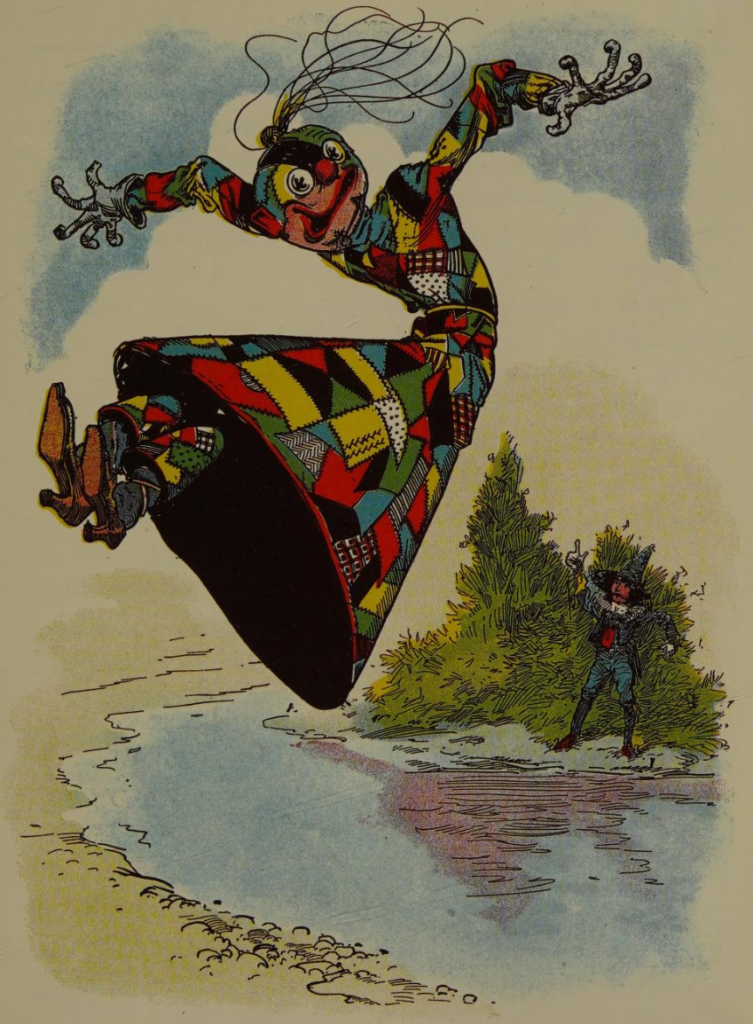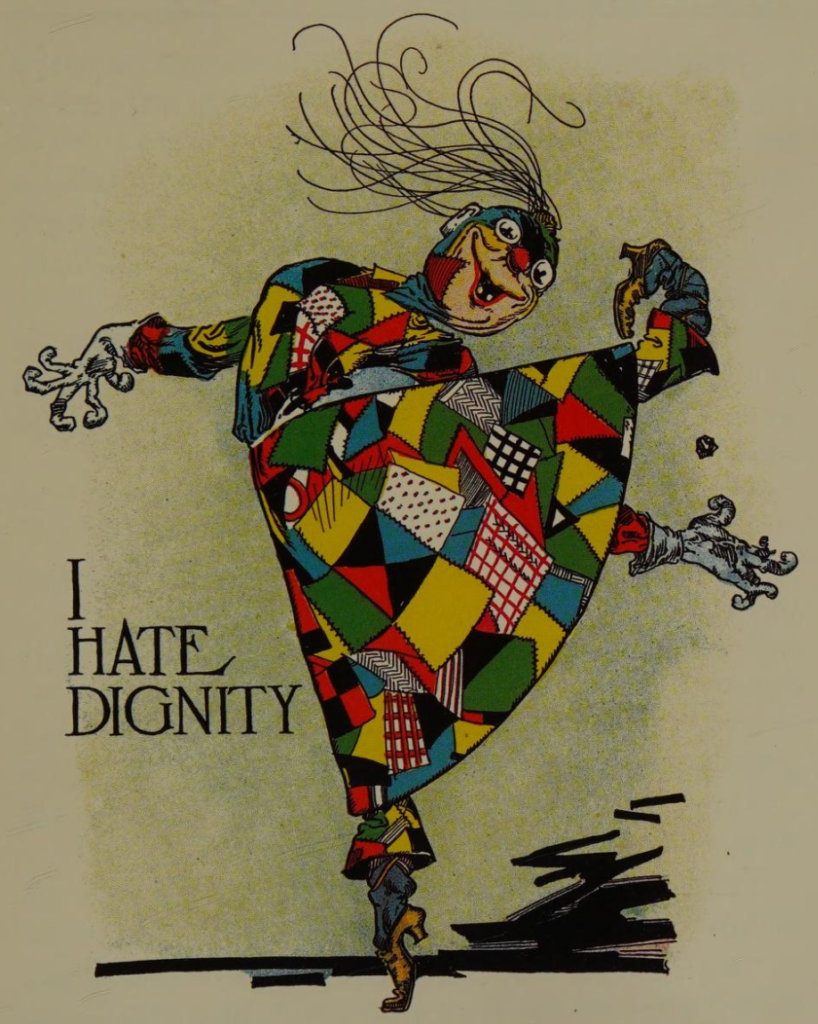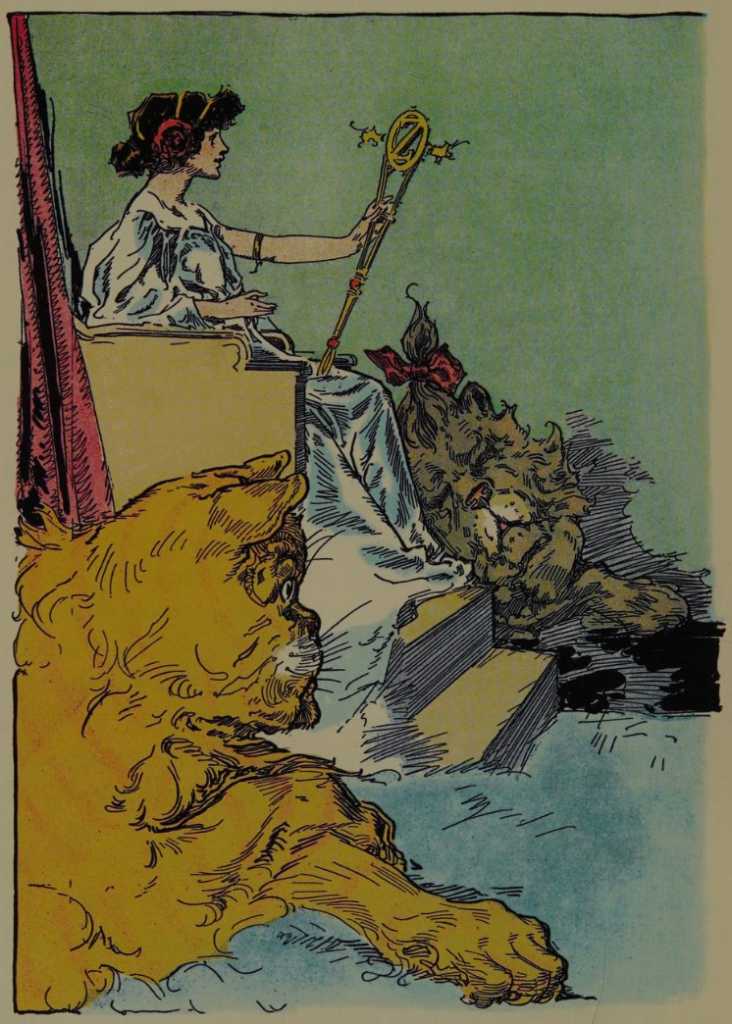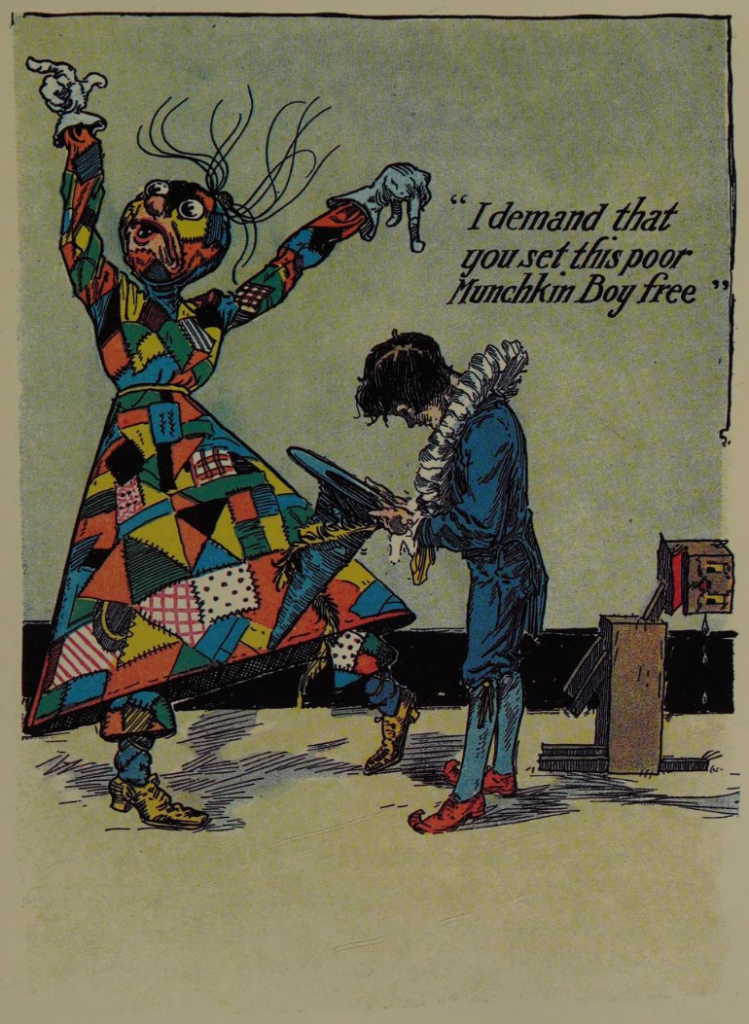The Players

In addition to plots, Baum seems to have remembered strong characterization, which in The Emerald City he reserved only for villains. Scraps is an abrasive clown. In a good way! Prone to singing, Scraps initially draws the ire of other characters. As though setting up a horror plot, a woodman darkly tells Scraps, “You’re crazy, girl. Better crawl into a rag-bag and hide there; or give yourself to some little girl to play with. Those who travel are likely to meet trouble; that’s why I stay at home” (77). Oz, it seems, is still so dangerous that people prefer never to travel. But the woodman does not hate Scraps, remarking, “A Glass Cat is a useless sort of thing, but a Patchwork Girl is really useful. She makes me laugh, and laughter is the best thing in life” (75).
After gaining consciousness, Scraps immediately deems herself “the supreme freak.” She then adds, “But I’m glad—I’m awfully glad!—that I’m just what I am, and nothing else” (57). (Again, queer allegory. The character is literally rainbow already.) Scraps totally defies her intended fate as a domestic slave. As she learns more, she rejects ordinary forms of respectability and even opposes Ozma (who is now the leading wet blanket aside from Glinda).
“I hate dignity,” cried Scraps, kicking a pebble high in the air and then trying to catch it as it fell. “Half the fools and all the wise folks are dignified, and I’m neither one nor the other” (132).

Scraps witnesses repressed Horner girls. They live submissive existences waiting for marriage, forbidden from cracking jokes, as per “the rules and regulations laid down by a leading bachelor” (290). Seeing these girls, her opposites, Scraps exclaims, “That old bachelor who made the rules ought to be skinned alive!” Feminist Scraps?
Not only joyous and selfish, Scraps is clever, observant, and shows great regard for Ojo. At one point, the characters encounter Chiss, a giant porcupine who kills travelers by launching quills as projectiles. When Chiss prepares to attack Ojo, Scraps “realize[s] in an instant” what is happening, “so she sprang in front of Ojo and shielded him from the darts, which stuck their points into her own body until she resembled one of those targets they shoot arrows at in archery games” (155). Scraps also dares conceal incriminating evidence and claim Ojo is innocent when Ozma puts him on trial. Sadly, the Wizard blows Scraps’s deception. But the effort demonstrates, yet again, that the Patchwork Girl is fearless. And brighter than the Scarecrow!

